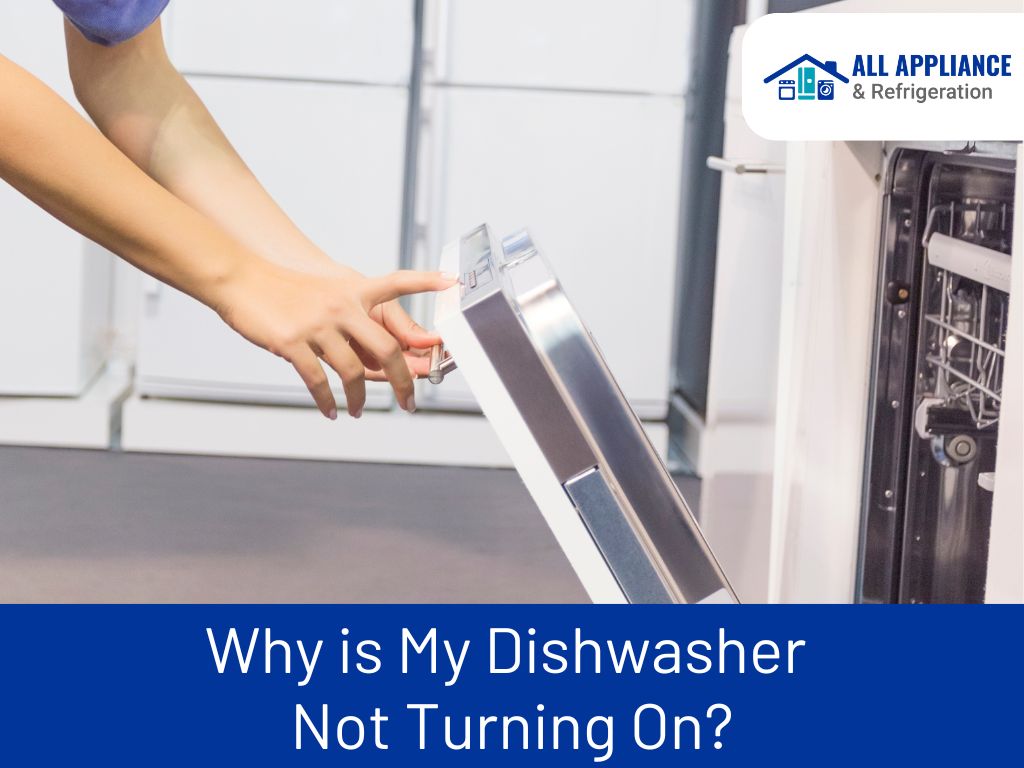How to Stop Refrigerator from Making Loud Noise?

Refrigerators are unsung heroes of our daily lives. They work round the clock to keep our food and drinks fresh and cold. However, while we rely on them to maintain the freshness of our groceries – they can sometimes become a source of annoyance due to loud and distracting noises.
These noises can range from subtle humming to loud rattling, cracking noises, or banging sounds, which can be quite disruptive and bothersome. So, how can we stop our refrigerator from making loud noises?
In this guide, we will explore some common reasons for a noisy fridge and discuss ways to fix them. Let’s get started!
Why is My Refrigerator Making Noise?
There can be several reasons why your refrigerator is making loud noises. Here are some possible culprits for that racket:
- Loose Components: Over time, the components inside your refrigerator may become loose due to frequent usage. This can result in vibrations and rattling noises.
- Malfunctioning Parts: Like any mechanical device, refrigerators can suffer from wear and tear. Damaged or worn-out parts, such as the condenser fan or motors, are often the root cause of the noise.
- Unbalanced Fridge: If your refrigerator is not standing on a flat and stable surface, it can cause it to wobble while running. This can lead to loud noises.
- Poor Maintenance: Lack of regular maintenance can also contribute to loud refrigerator noises. Dirt, dust, and grime build-up can affect the performance of the fridge and result in strange sounds.
If you ignore these issues, they can snowball into larger problems, resulting in costly repairs or even premature refrigerator replacement. It’s crucial to address the noise promptly to save yourself from the hassle and expense.
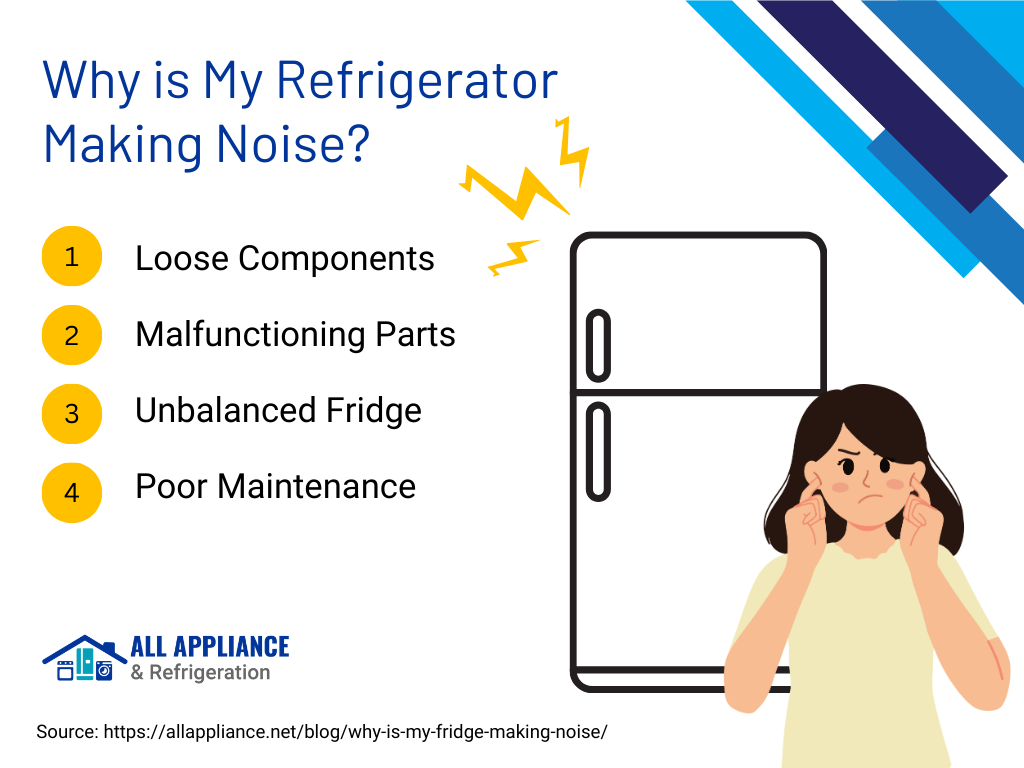
How to Fix a Noisy Refrigerator?
1. Listen for the Source of the Noise

The first step in addressing a noisy refrigerator is to pinpoint the source of the problem. Is the noise coming from the back or the bottom of your fridge? Is it a constant buzzing, rattling, or scraping sound? Identifying the source and type of noise can help you determine the cause and find a solution.
Begin by removing all items from the inside of the refrigerator. If the noise stops after doing this, it’s likely that an object inside the fridge was causing the noise. For example, if there is an unbalanced jar or shelf, it can cause rattling noises.
Once you’ve ruled out any internal objects, you should be able to hear the noise more clearly. Try to locate where it’s coming from by listening closely to the back, bottom, and sides of the fridge. If you can’t pinpoint the source, it’s best to call a professional for help. They have the expertise and tools to diagnose and fix the issue.
2. Secure the Drain Pan
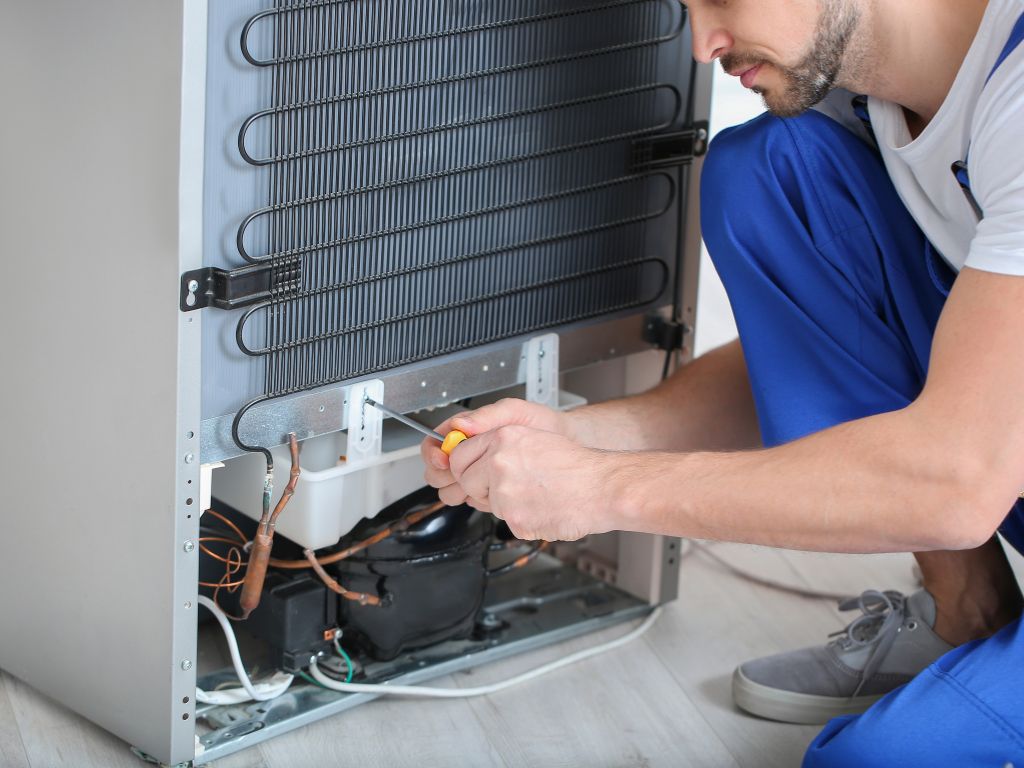
If the loud refrigerator noise is coming from the bottom of your fridge, it’s likely caused by a loose or damaged drain pan. The drain pan is located at the bottom of the fridge and collects condensation from the refrigerator’s cooling process. Over time, it can become loose or cracked, causing it to vibrate and make noise. To fix this, you will need to secure or replace the drain pan.
First, unplug your refrigerator and remove any items on the bottom shelf. Locate the drain pan and check if it’s loose or damaged. If it’s a loose drain pan, use a screwdriver to tighten the screws holding it in place. If it’s cracked or damaged, you will need to replace it with a new one. You can purchase a replacement drain pan from an appliance store or online. Once you have a new one, simply remove the old pan and install the new one in its place.
If you’re not comfortable replacing the drain pan yourself, it’s best to call a professional for assistance. They can ensure that it is properly installed and prevent any further issues.
3. Listen for a Faulty Defrost Timer
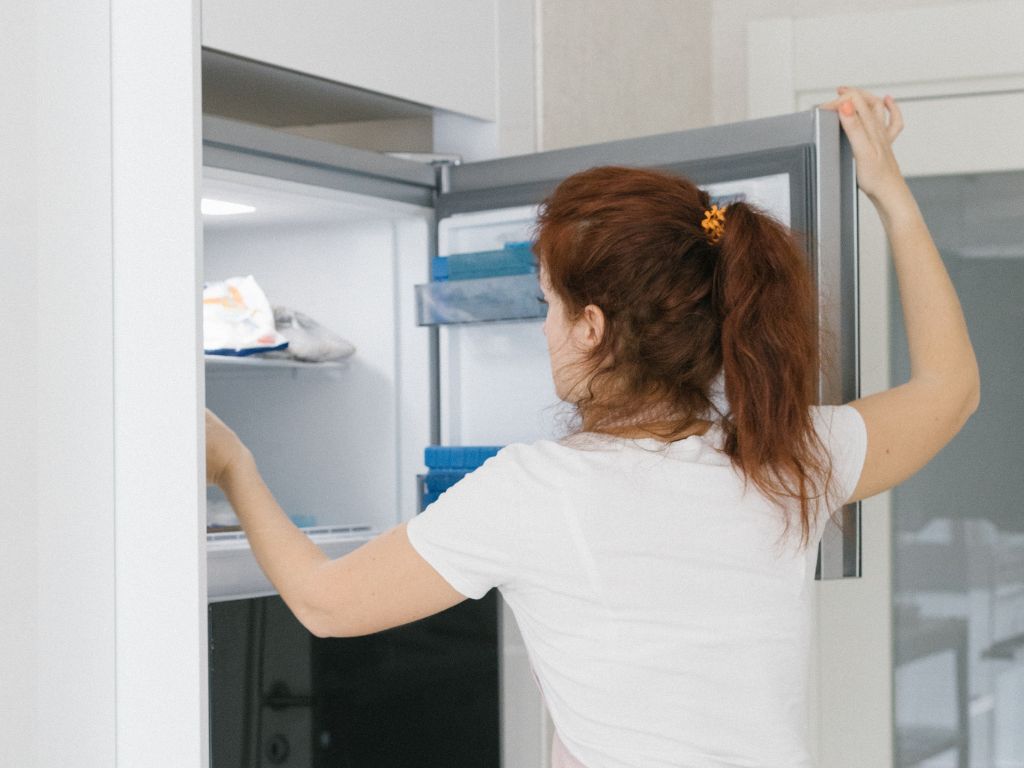
If the refrigerator noise occurs periodically and seems to be coming from inside the fridge, it could be due to a faulty defrost timer. The defrost timer controls when the refrigerator goes into a defrost cycle, which is necessary to prevent ice build-up on the evaporator coils. If this timer is malfunctioning, it can cause loud rattling noises as it tries to initiate the defrost cycle.
To check if the defrost timer is causing the noise, you’ll need to listen carefully for when it occurs. If it happens at regular intervals, it’s likely due to the timer. You can also try manually turning off the defrost cycle and see if the noise stops. If it does, then you know that the timer is the issue. In this case, you will need to replace the defrost timer with a new one.
You can find the correct replacement timer by referencing your refrigerator’s model number.
4. Examine the Evaporator Fan
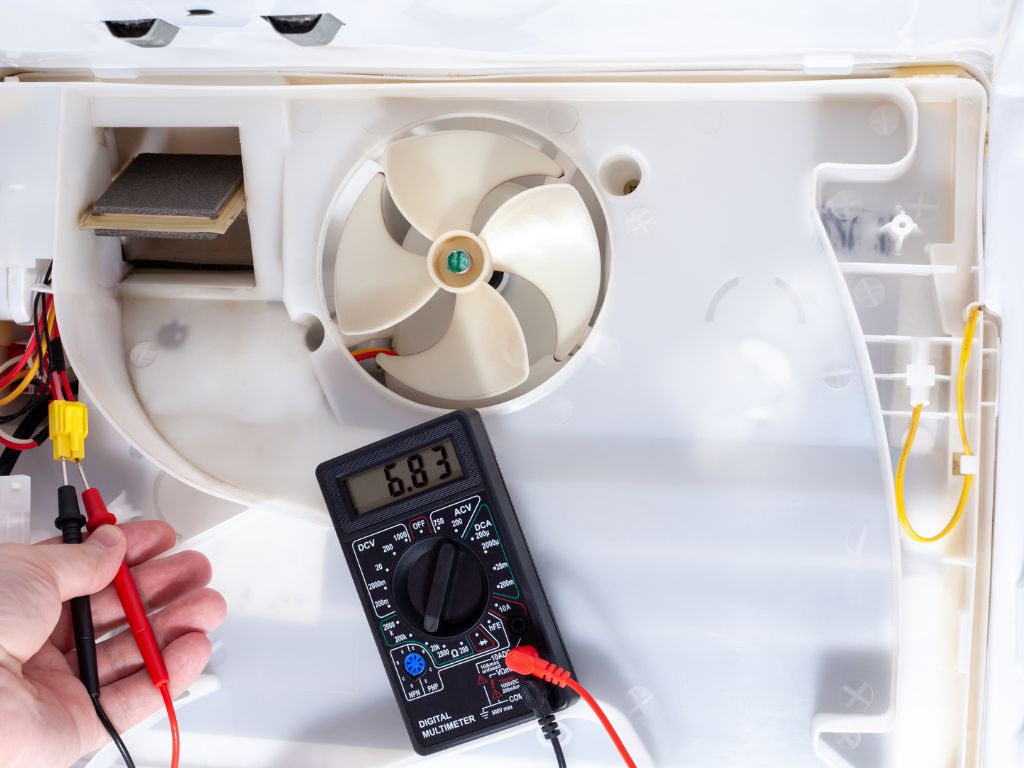
Another possible cause of refrigerator noise could be a faulty evaporator fan. This fan is responsible for circulating air over the evaporator coils, which helps to keep the fridge cool. If the fan becomes loose or damaged, it can create a loud rattling noise as it spins.
To check if the evaporator fan is causing the noise, you will need to access it. This may involve removing some panels or covers on the inside of your fridge. Once you can see the fan, inspect it for any signs of damage or looseness. If you notice any issues, such as a broken blade or loose mounting screws, you’ll need to replace the fan with a new one. A professional technician may be able to repair the fan instead of replacing it, so it’s worth considering this option as well.
If the evaporator fan appears to be in good condition, you may still want to try cleaning it. Dust and debris can sometimes build up on the fan blades, causing them to become unbalanced and create noise. Use a soft cloth or brush to gently clean the blades and see if that helps reduce the rattling or sizzling sound. If not, then it is likely another issue is causing the problem.
5. Check the Compressor
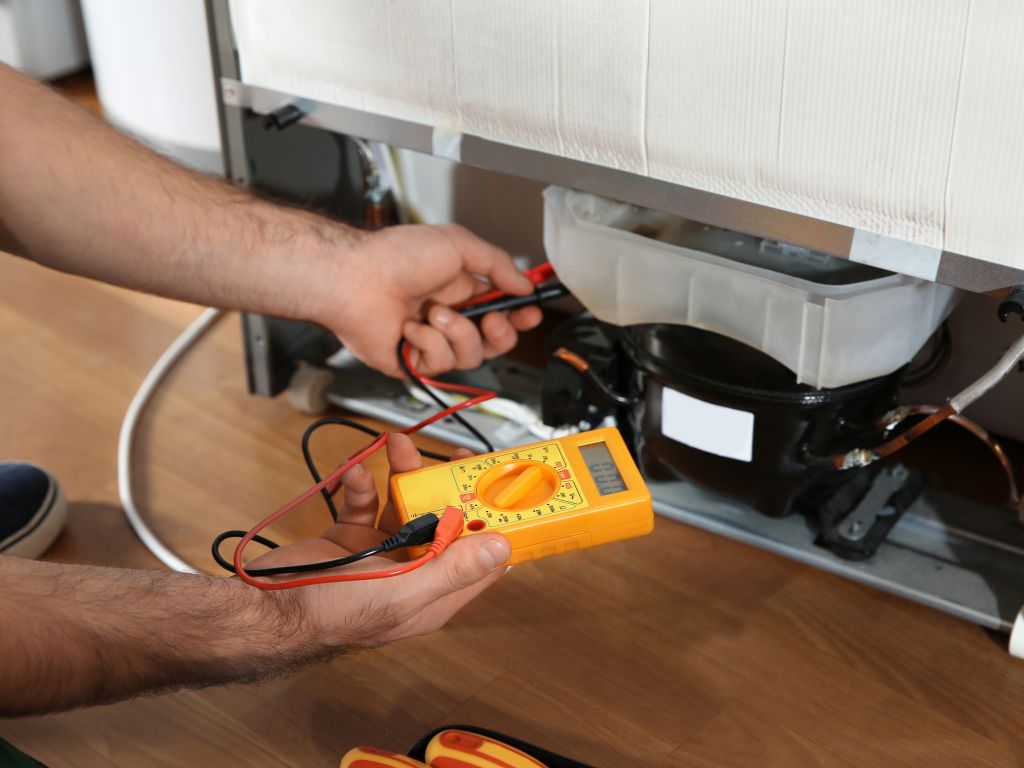
The compressor is another component of your refrigerator that could be causing refrigerator noise. This part is responsible for compressing refrigerant gases and circulating them through the fridge’s cooling system. If the compressor is wearing out or becoming loose, it can create a loud humming or vibrating sound.
To check the compressor, you’ll need to access it from the back of your fridge. It’s best to have a professional technician do this, as it can be a difficult and dangerous component to repair or replace. They will be able to determine if the compressor needs to be repaired or replaced and can perform the necessary work safely.
The Wrap Up
As you can see, there are a few possible causes for refrigerator noises. By following these steps and inspecting the fan and compressor, you can pinpoint the source of the noise and take appropriate action to reduce or eliminate it. Remember to always prioritize safety and consider hiring a professional technician if needed.
At All Appliance & Refrigeration, we have experienced technicians who can diagnose and fix any issue with your refrigerator. Whether it’s a rattling noise or another problem, we can help get your fridge running smoothly again.
Contact us today to learn more about our services and to schedule an appointment.


